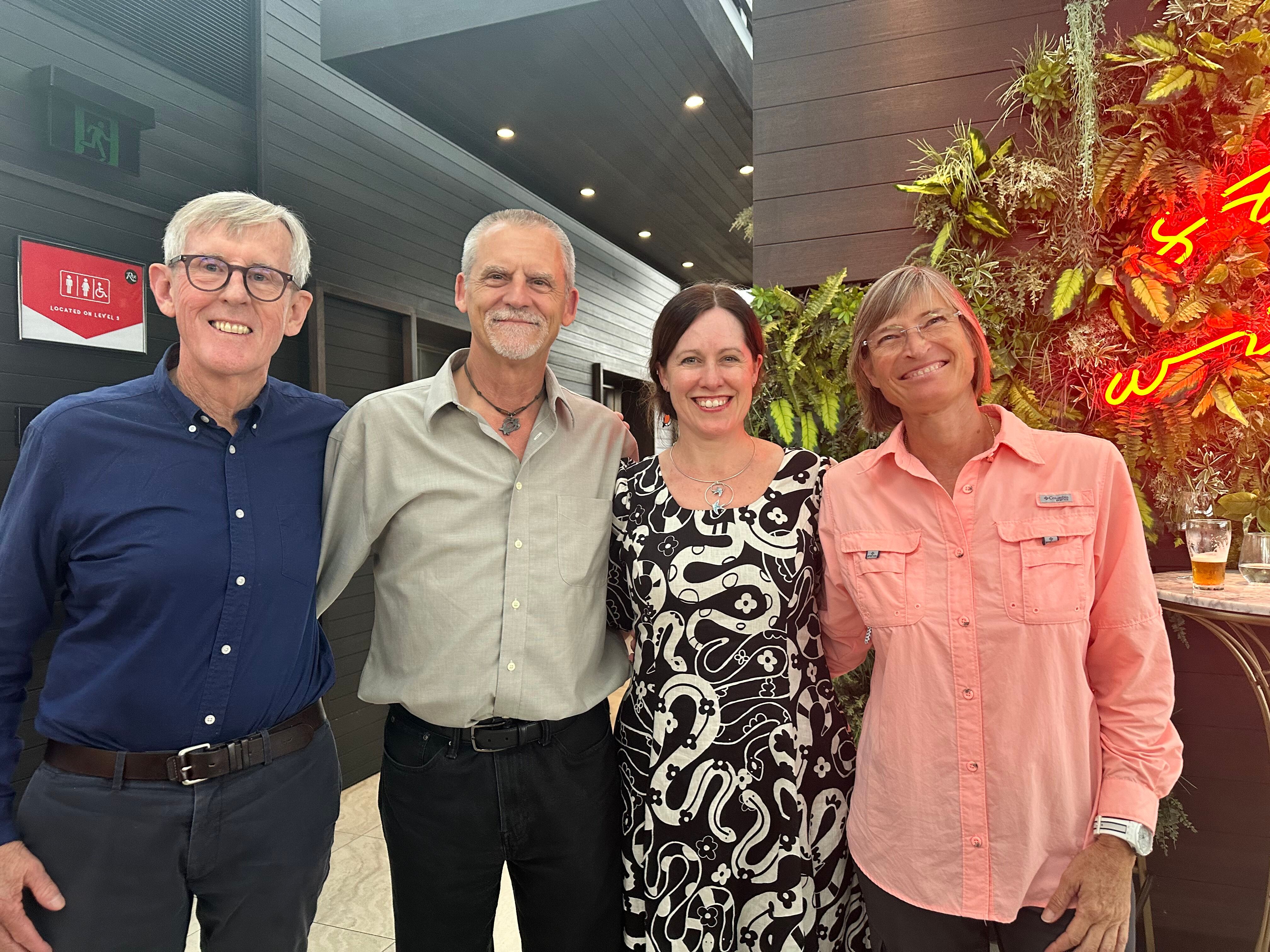SIG in the Spotlight: Unusual Pets and Avian Veterinary Group
12 Jun 2025
In this edition of SIG in the Spotlight, we introduce the Unusual Pets and Avian Veterinary Group (UPAV) and its President, Dr Susan Beths, an accomplished veterinarian, Senior Lecturer in Exotics and Wildlife, and Service Head of Primary Care and Shelter Medicine.
UPAV brings together veterinary professionals with a passion for animals beyond the usual dogs and cats, including birds, reptiles, amphibians, small mammals, and invertebrates. UPAV has become a hub for sharing knowledge, supporting new graduates, and advancing veterinary care for the growing number of Australians choosing unusual pets.
Tell us a bit about the Unusual Pets and Avian Veterinary (UPAV) Group?
UPAV was originally formed in 2003, when it was called the Unusual and Exotic Pet group. The name changed to the Unusual Pets and Avian Veterinary group in 2013 when the group merged with the AVA Avian Groups. Anyone who does any of the non-traditional companion animals care, can have an area of interest within our group.
The aim of the group is to promote discussion about medicine and surgery of the non-traditional pets. This covers all your different birds, all your different reptiles, small mammals, invertebrates, amphibians, native mammals, and all sorts of species and areas.
How does UPAV support recent graduates?
It’s an area that isn't covered as widely in the undergraduate course, because you've only got so much time in the 4 or 5 years, so we also aim to allow a space where we can all chat and carry on learning, after graduation.
There also isn't always the in-practice support for new graduates that there is for the other species, so we can try and bridge that gap and play an important role in supporting them. I started out in mixed practice, and my mentors - the more qualified, experienced vets - had been doing cattle, sheep and pigs for years, and could really support me. However, when the exotic pets came in the mentality was ‘well, we kind of do this, we kind of do that, find your way’.
What we're trying to do is give that support to those veterinarians.
How does UPAV support veterinarians in gaining the necessary skills and confidence to treat the more unique species?
Each year, we hold a conference, that lasts for about 3 days, and we usually have an international or local, world-renowned keynote speaker. We have a range of speakers from vet students, new grads, and anything in between, up to other local specialists speaking on topics, going over their research findings and giving interesting cases, and doing Masterclasses. We also have a nurse’s stream during our conference as well to support the nurses who then support us. So that's really sort of educating the whole team. It moves around the country each year, so at least every few years our members are living near one and don't have to travel too far.
This year, we’re joining the 50th ASAV Annual Conference, along with the Australian Veterinary Dental Society (AVDS), the Australian Veterinary Conservation Biology (AVCB) group. It’s being held in Cairns from 25-28 August.
Then across the year, we present 4 webinars on different topics. We try and vary it across the year, and usually the topics are chosen based on what the members have requested. We give out a questionnaire at the end of each webinar and ask what would you like to hear more of in the future.
2024 UPAV Conference
How does the SIG support vets in their daily work?
We have a Facebook group and Instagram page where members - or anyone - can post questions and seek advice. We have Board specialists and highly experienced vets on there, along with peers who are available to help.
You'll have people posting a photo of what they saw down the microscope, asking, can anyone tell me what I'm seeing, or even something as basic as what's the dose being used for this drug.
Have you noticed any recent trends in the types of unusual pets Australians are choosing, and what impact has this had on veterinary practice?
It's quite interesting, I feel the range is basically still the same but now we see more of them, more reptiles, small mammals and all the different birds. People who perhaps have never owned a different kind of pet from a dog or cat, are now starting to have unusual pets. Just this week I had a client who came in with their conure, who wasn't very well, and it was their first time owning a bird.
We’re also seeing more because I think the knowledge, expectation and the desire to have good veterinary care for them is also increasing, as it is with lots of our other species.
Not everyone wants to treat them, and so we get to treat them. But it's also sad at the same time, because they can't get the level of care everywhere. And so therefore sometimes people travel very large distances to see us, and out of hours support for our clients, isn't always available.
Looking ahead, what are your main goals for UPAV over the next few years, and what emerging issues do you anticipate will be most important for your members?
I'd like to set up more of a mentoring network and actually link up exotic vets with new grads who have got an interest in exotics and develop a one-on-one connection.
We’re looking at regulations in pet food and how that's regulated. That's an AVA advocacy area we'd like to piggyback on and include our unusual pets in as well.
Another goal is support for out of hours as well. There’s the obvious pressure of the work, but when we add on the fact that it might be an unusual pet coming in for care, we need to support the emergency vets that perhaps aren't as comfortable with them. Our pets and our clients want to be able to access exotic savvy vets out of hours. There’s a shortage of vets who work out of hours, and even fewer who are comfortable with nontraditional companion animals. So we have both aspects – supporting the veterinary profession to be able to provide that support, and also our patients to find it.
With emerging issues, we're always looking at avian influenza and how that'll affect us. If a practice gets a case in and then has to close, that would be a huge detriment to not only that practice, but all their clients as well. A lot of our SIG members are worried about how that might affect them, so we are looking at what policies are being drawn up, and I know some of our SIG are involved in discussions with the AVA and the Government.
Want to know more about the Unusual Pet and Avian Veterinarians group? Reach out to our Member Services team via members@ava.com.au


